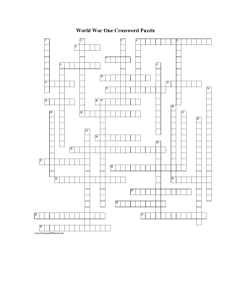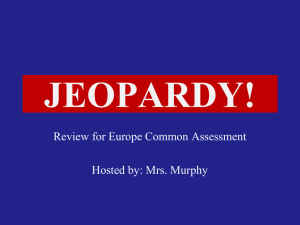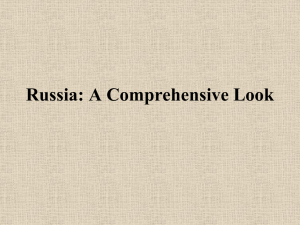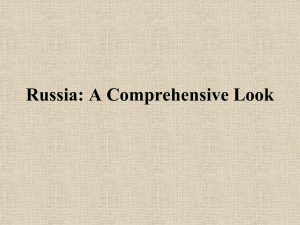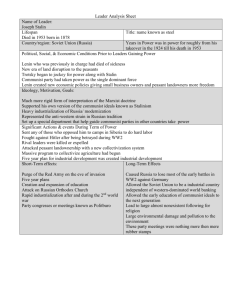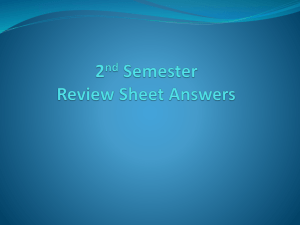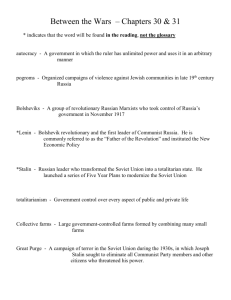Eastern Europe
advertisement
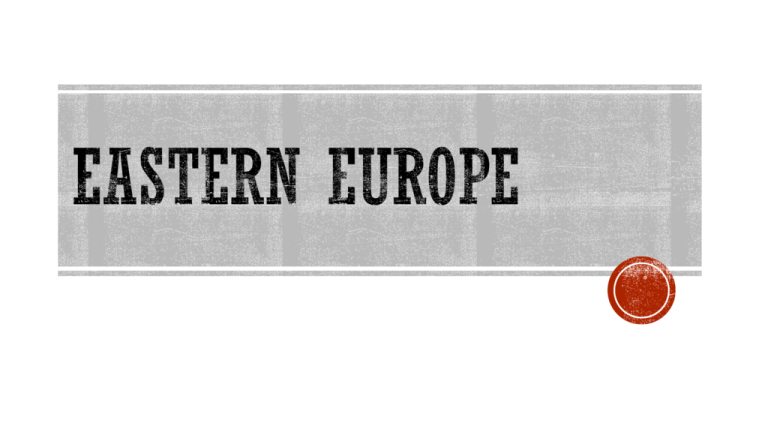
Think about your favorite movie. What kind of movie is it? Comedy, drama, horror, action? What is it about the movie that you like? Greece sits at the southern tip of the Balkan peninsula and the islands that make up its southern region in the Aegean Sea are called an archipelago. Archipelago: a group of islands Ancient Greece is considered the birthplace of modern civilization. They came up with ideas like theater, philosophy, and democracy. They created lifelike statues and paintings which are still imitated by other civilizations to this day. They invented new forms of literature including history and drama. They made advances in geometry and math that we still use today. Philosophy is the study of the fundamental nature of knowledge, reality, and existence. The study of philosophy led to advancements in science and math. Socrates, Plato, and Aristotle are considered the greatest philosophers of ancient Greece. Using the Greek alphabet, try to write your initials and then your name. How does seeing your name in a different alphabet affect how you perceive it? How do you get along with someone you don’t like? If you can’t get along, how do you handle the conflict? The Balkan Peninsula is a very culturally diverse area. There are 4 religions, 3 language groups, and 7 ethnicities. These cultural differences have led to a long history of violence in the region. The 4 religions in the region are: 1. Orthodox Christianity – an ancient branch of Christianity that does not recognize the Roman Catholic Pope. 2. Roman Catholics – recognize the Pope as the head of the church 3. Protestant Christian – Baptist, Methodist, Presbyterian, etc. 4. Muslim – believe in Allah and follow the teachings of Mohammed. Four language groups: 1. Slavic languages – use Cyrillic alphabet Cyrillic – a form of the Greek alphabet 2. Latin – related to Spanish, Italian 3. Germanic – related to English and German 4. Other – Albanian and Roma are unlike any other languages. Ethnic Groups: 1. 2. 3. 4. 5. 6. 7. Albanians Croats Macedonians Montenegrins Bosnians Serbs Slovenes Ethnic Cleansing – an effort to remove all members of a group from a country or region. Are you able to influence what your friends do? How do you get them to do what you want? Can your friends get you to do what they want? Why are they able to have so much influence over you? Communism: a political system in which the government owns all property and dominates all aspects of life. Leaders of most communist governments are not elected by citizens. They are chosen by the leaders of the Communist Party. The Communist Party is usually the only party in a communist country. Russia adopted Communism after the Bolshevik Revolution in 1917. After World War 1, Russia got several countries to join it in order to protect itself against Germany. This newly organized group was called the Union of Soviet Socialist Republics or the U.S.S.R. In Europe, these countries included: Estonia, Latvia, Lithuania, Belarus, Ukraine, and Moldova. Other countries also adopted Soviet-style Communism, including: Hungary, Slovakia, Poland, Romania, and Bulgaria. In order to stop the spread of Communism, the United States adopted a policy called “Containment.” They wanted to preserve capitalist markets for their goods. As a result, the United States went into several countries and fought the spread of Communism. The Soviet Union adopted a policy of helping the Communist Parties of countries gain influence. This lead to a build-up of arms between the two countries (including nuclear weapons) called the Cold War. 1. What is a command economy? A. An economic system in which the central government makes all economic decisions B. An economic system based on free trade and competition C. An economic system that allows buyers to command what they want to buy D. An economy in which people are commanded what to buy. 2. How does a command economy respond to changes in the market? A. It adapts quickly through supply and demand. B. It makes changes slowly as it works its way through an advisory committee. C. It does not respond to changes in the market. D. The market does not change and so no response is necessary. 3. What is not a major drawback to a planned economy? A. It limits the amount of choice consumers have. B. It cannot easily adapt to changes in the market. C. It does not allow for innovation in products and services. D. People are able to buy whatever they want from whomever they want. 4. A. B. C. D. What type of system has elements of both a market economy and a command economy? Planned Market Economy Traditional Economy Mixed Economy Planned Economy A command economy is an economic system in which the central government makes all economic decisions. It is also called a planned economy. Under Communist rule, Russia and the rest of the U.S.S.R. had a command economy. Does a command economy effectively produce and distribute goods and services? Why or why not? Which person would you rather have in charge: a king, a dictator, or a president? Why? From the 1540 to 1917, Russia was ruled by a czar or emperor. Czar is Russian for “Caesar” which was the title given to Roman emperors. The first czar of Russia was Ivan IV, also known as Ivan the Terrible. The czars expanded the Russian Empire from Moscow into eastern Europe and western Asia. Despite it’s growth, Russia remained largely a country of poor farmers, while the czars and nobles had most of the wealth. In 1914, Russia entered World War I. The country suffered huge losses in the war. The people experienced severe shortages of food. The czar ignored the people’s hardship and so the people revolted. In 1917, the Bolshevik Revolution brought the Communists to power. They killed the czar and his family. They formed the USSR which included 15 republics, the strongest of which was Russia. Vladimir Lenin was the first leader of Communist Russia. After Lenin died, Joseph Stalin took power. He was a brutal and paranoid dictator. Russia set up a command economy under his leadership. Anyone who spoke out against him was sent to a gulag. Gulags were a harsh Soviet labor camps often located in the harsh sub-Arctic climates of Siberia. After World War II, Stalin began setting up more Communist governments in Eastern Europe as a buffer to protect Russia from invasion. The United States opposed this and saw it as a threat to democracy and free markets. This rivalry led to the Cold War, which was a period of time when these two countries became military superpowers as they competed to have superior weapons. The Soviet economy began collapsing in the 1980s. This was mainly because of the high cost of producing weapons to keep up with the United States. There was also a great deal of corruption in their economic system. Soviet leader Mikhail Gorbachev introduced a set of policies called glasnost which made the government more open and accountable and also allowed for some democratic reforms. In spite of these changes, the economy collapsed in 1991 and the USSR disbanded. Today the Russian government is a federal republic like the United States, with power divided between national and local governments. Voters elect a president who serves as the country’s chief executive and most powerful official. The president appoints a prime minister to oversee a legislature called the Federal Assembly. Russia has also shifted towards a market economy although the government still owns the energy production (oil, gas, coal, nuclear, power plants, etc.) in the country. On your timeline, use colored pencils or crayons to indicate periods of Russian history that you would NOT want to live in by shading in the area between those dates. Using a different color, indicate the periods of time that you would want to live in. Provide a brief explanation of your reasoning for each. Do we have a duty to speak out against the government when it does something we think is wrong? Why or why not? From the 1930s to the 1980s, the Soviet Union used forced labor camps called gulags to punish people who spoke out against the Communist Party. Russian soldiers took Esther’s family from their home in Poland to work in Siberia. How do you think this fact affects Esther’s feelings as she views the landscape of Siberia from the train? As you watch the following video, pay attention to the following: Why were people arrested? When were they arrested? How were they arrested? How were they treated once they were arrested? What were others told about the arrest? Write a 3.5 paragraph in response to the following: Why do you think gulags were used as punishment? It may help you to consider the following: What about the environment made it such a bad place to live? What were the conditions like there? What were your chances of surviving? Get an iPad and log on. Go to http://www.bath.kyschools.us/olc/class.aspx?id=12717&s=242 Click on “Russian Culture Links” Open the folder that is assigned to your group Art Dance Music Work together with your group to pick something from that folder for the next group to read or view. Write the link on the paper provided and give an explanation for why you chose that link. When you move to the next table, view the link they have chosen for you and then choose another one for the next group, repeating what you did at the first table. You must select a different link than the one that was selected for you. At the 3rd table, view both of the links selected by the first two groups. As a group, select which one you believe best represents that aspect of Russian culture and explain why. Using the rubric on the board, respond to the following prompt: Based on what you know about Communism, explain why you would or would not recommend it as a form of government. Be sure to include specific examples in your answer.
